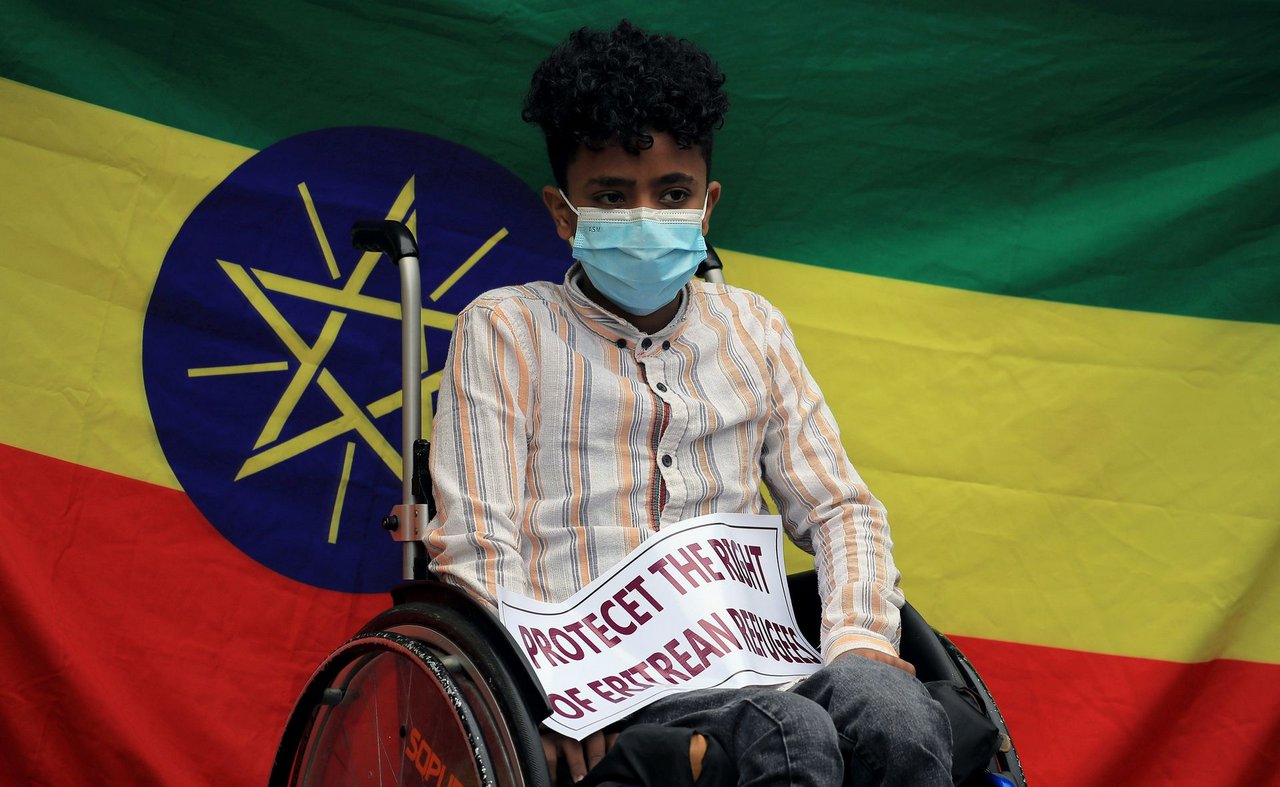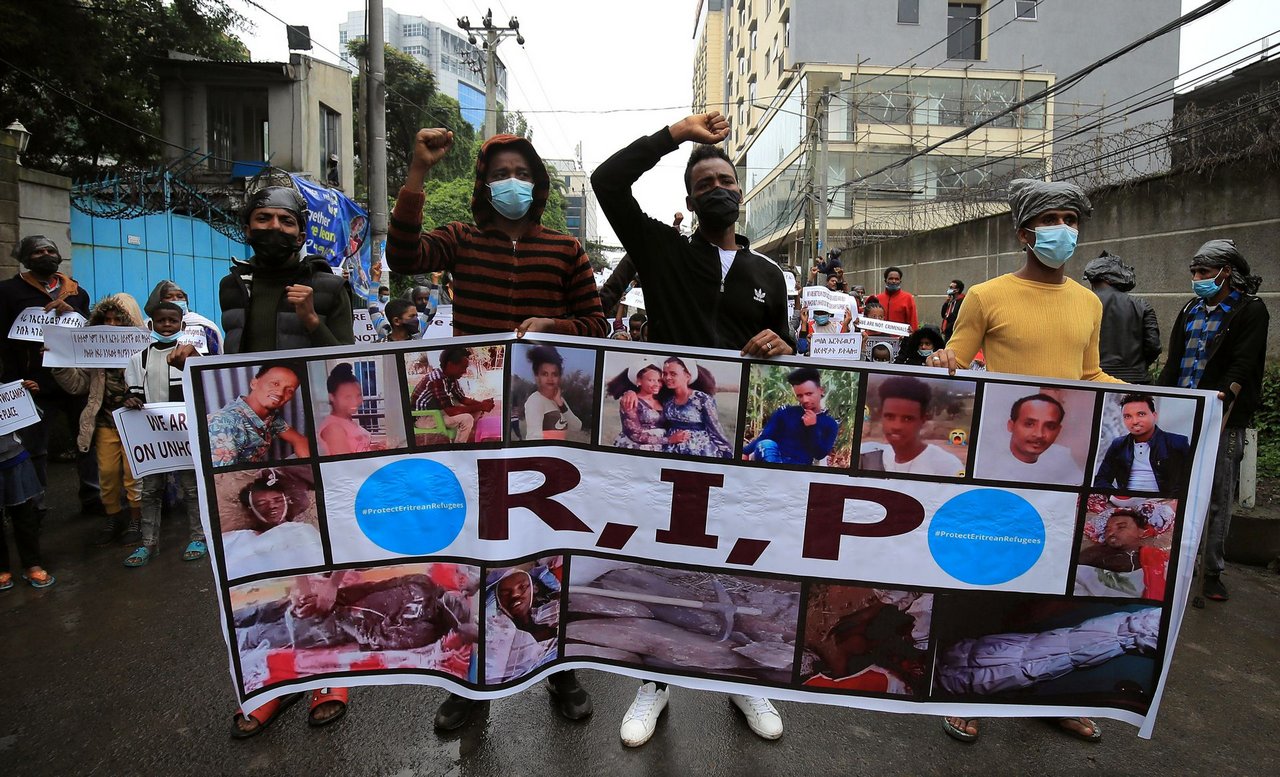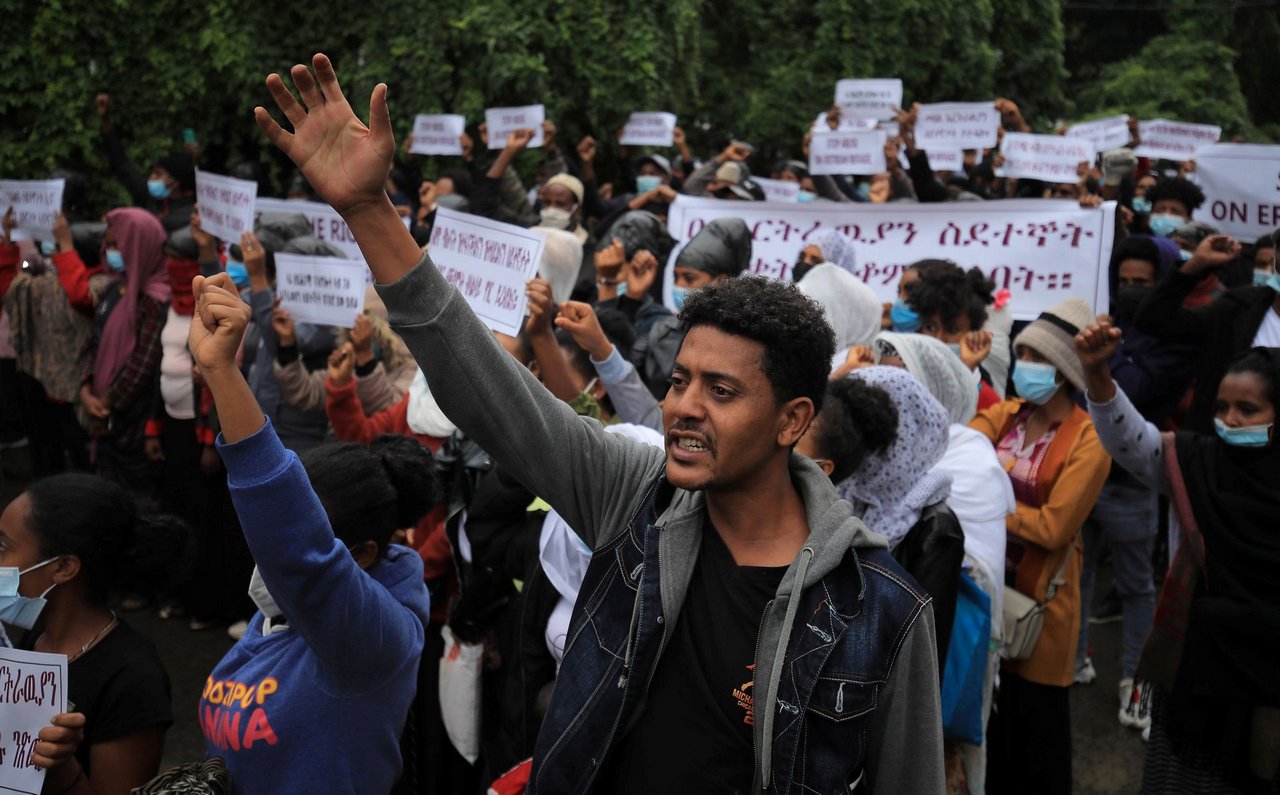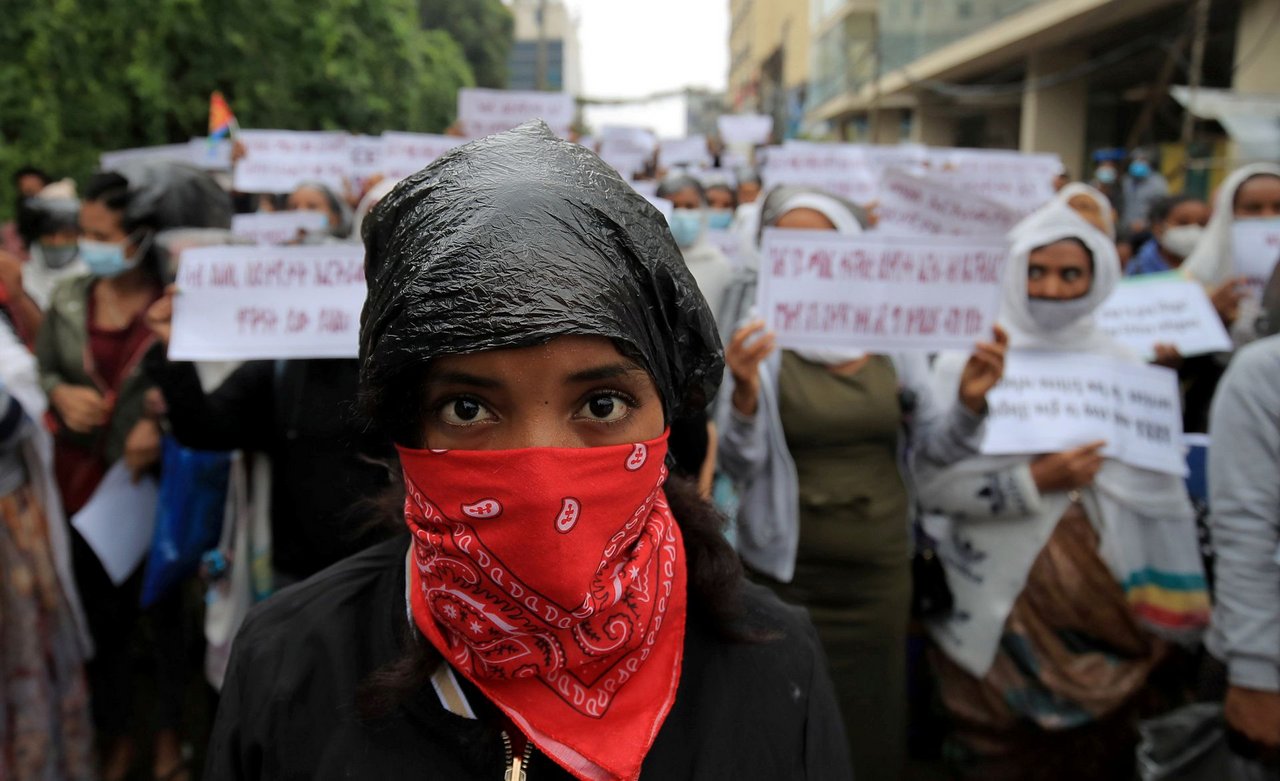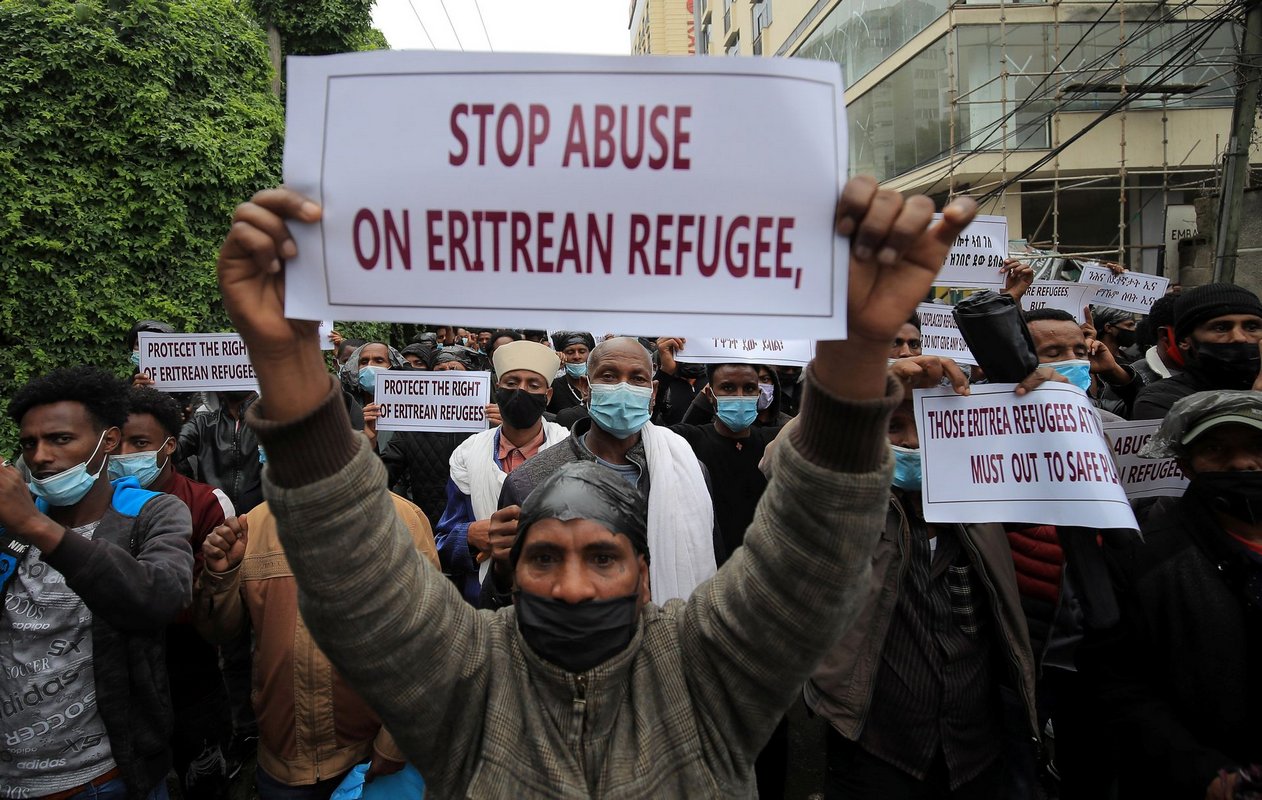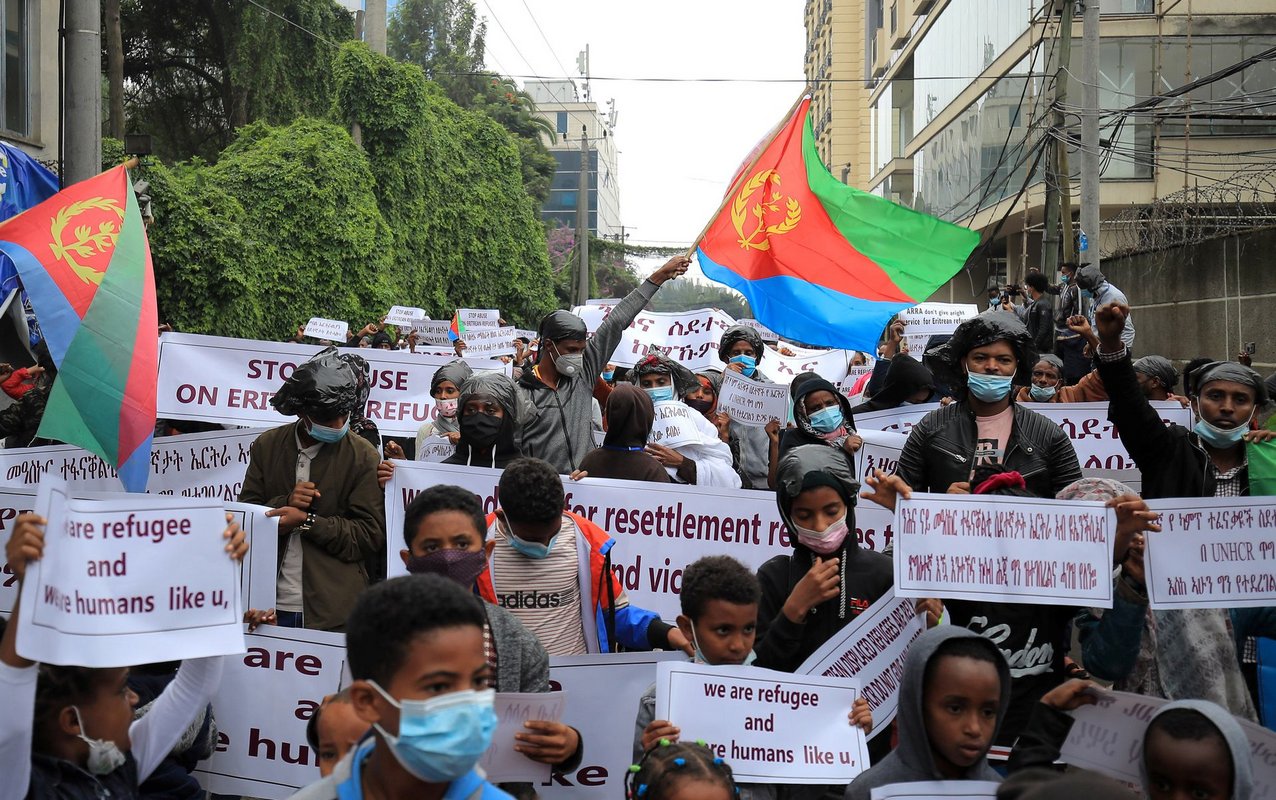Hundreds of Eritrean refugees protested in the Ethiopian capital on Thursday, calling on the United Nations refugee agency to relocate friends and family who they say are trapped in two refugee camps by fighting in the Tigray region.
Clashes between armed groups have escalated in and around the camps – Mai Aini and Adi Harush – and two refugees have been killed this month, the UNHCR said on Tuesday. The agency said it lost access to the camps on July 14.
The United States said on Tuesday it was deeply concerned about the fate of Eritrean refugees in Tigray.
“We need UNHCR to move (the refugees) from the camp because the area is a war zone,” said Hermon Hailu, 22, an Eritrean refugee participating in the protest in the capital Addis Ababa.
He told Reuters he was worried about his mother in Mai Aini camp whom he had not been able to reach by phone for weeks.
The UNHCR said on Tuesday it had relocated about 100 refugees from the two sites and was in discussions with Tigrayan authorities to secure safe passage out of the camps for others.
The agency did not immediately respond to a request for comment on Thursday.
TRAPPED
Conflict broke out between the Ethiopian central government and the Tigray People’s Liberation Front (TPLF) in November with the government seizing control of the regional capital Mekelle three weeks later and declaring victory.
But the TPLF kept fighting and retook Mekelle along with most of Tigray at the end of June after government soldiers withdrew.
The refugee camps, which have existed for years and house Eritreans who have fled repression in their home country, were caught up in violence that now threatens to escalate.
In the wake of the TPLF’s successful counter-offensive, Ethiopia’s other nine regions have pledged to send forces to support the military against the Tigrayan fighters.
Demonstrators on Tuesday held a banner reading “Protect the rights of Eritrean refugees”.
Medihn Mehari wept as she recalled the death of her infant son shortly after he was born, just after war broke out last year in Tigray.
She said she fled to safety in Addis Ababa from Hitsats, another refugee camp in Tigray, in January, but did not know where her husband was.
“We want those who are there to leave the camp,” she said. “I don’t want the same thing to happen to them,” she said.
 Alghadeer TV Alghadeer TV
Alghadeer TV Alghadeer TV
